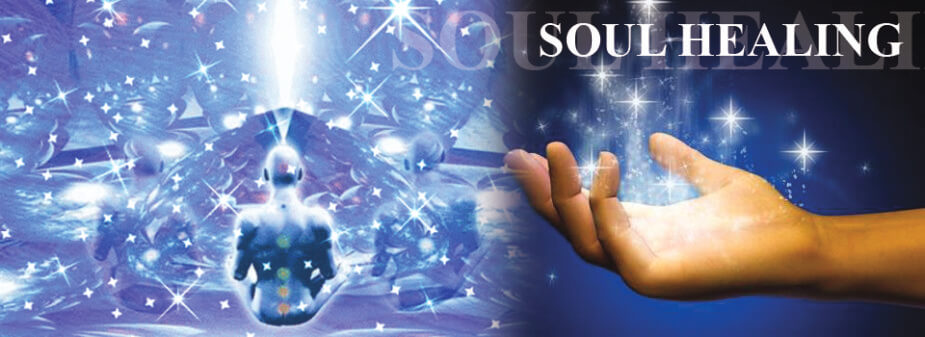The discourse surrounding the nature of the human soul has captivated theologians, philosophers, and scientists alike. It stands as a crossroads where spirituality meets empirical investigation, particularly pronounced within the framework of Bahá’í teachings. This multifaceted perspective propounds a synthesis of the human soul as both a divine creation and a product of evolution, offering a rich tapestry of thought that transcends conventional dichotomies. Through this exploration, one can engage with the intrinsic complexities and profound implications of the human soul.
The Bahá’í faith asserts that the human soul is a manifestation of the divine, radiating from God’s essence. This conception of the soul as a divine creation establishes a foundation rooted in spiritual authenticity. The soul, in this paradigm, is considered immortal, transcending the temporal confines of the physical existence. It is an intrinsic part of our being; it evolves during its earthly experience through the trials and tribulations of life, cultivating character and virtues. The imagery of the soul as a ‘light’ becomes a striking metaphor, illuminating the path toward higher consciousness. Through this lens, one perceives that the soul is not merely an ephemeral entity but a bridge connecting the finite human experience to the infinite divine reality.
However, to extract a more nuanced understanding, one must also consider the implications of evolutionary theory as it relates to the soul. Herein lies the allure of synthesizing these perspectives. Evolutionary biology, which posits a gradual change through natural selection, provides a compelling framework for examining the development of human consciousness and moral agency. The hypothesis that the human soul has emerged as a product of evolutionary processes does not negate its divine origin but rather enhances the complexity of its nature. In this regard, the evolution of the soul mirrors the ascension towards greater realization and understanding of one’s purpose.
At this juncture, it is essential to examine the role of experiences in shaping the soul. As Bahá’ís believe, each individual possesses the capacity for spiritual growth, akin to a gardener nurturing a seed into a flourishing plant. Just as the gardener cultivates the soil, providing nutrients and care, so must individuals tend to their souls, nurturing their potential through expression, love, and service to humanity. This active cultivation amplifies one’s spiritual capacity, reinforcing the notion that growth is a dynamic interplay between divine gifts and earthly experiences.
Comparatively, the dialogue surrounding the soul’s evolution can invoke an inquiry into the nature of change itself—much like the transformative journey of a caterpillar to a butterfly. This metamorphosis serves as an apt illustration of how the soul transcends its initial state, embodying a continual process of refinement. The Bahá’í teachings intimate that the evolutionary process enhances spiritual faculties, encouraging individuals to cultivate virtues such as compassion, justice, and humility, while ultimately approaching a divine ideal.
The interplay between the divine creation of the soul and its evolutionary progress extends into the realm of collective consciousness. As humanity cooperates in this grand cycle of growth, the soul of humanity itself is on a path of evolution. Bahá’í philosophy emphasizes that the collective experiences of society can be seen as interconnected strands weaving through the fabric of existence, forming a global tapestry. Hence, humanity collectively nurtures its soul, evolving through collective challenges and triumphs, leading towards unity and peace.
The concept of the soul as both a divine invocation and an evolutionary byproduct raises intriguing questions about morality and ethics. In acknowledging the transformative aspect of the soul, one can ascertain that moral responsibilities expand; each individual bears the duty to contribute positively to the collective soul of humanity. Through service, selflessness, and love, one continuously participates in the evolution of the human spirit. Such responsibilities dictate that virtues are not merely passive attributes but are actively cultivated through daily interactions and decisions.
Moreover, the Bahá’í view on the soul addresses existential inquiries that have long plagued humanity: What is our purpose? What lies beyond this life? The assertion that the soul is both a divine gift and a result of evolution aligns with the idea that the soul navigates through various realms of existence, requiring individuals to seek out deeper meanings behind their actions and interactions. This trek towards higher understanding serves to remind humanity of its potential to rise above mere survival, ushering in a medley of joy and fulfillment.
Furthermore, the Bahá’í teachings beckon individuals to aspire towards a more profound awareness—the recognition of the interconnectedness of all beings. This perspective cultivates compassion and empathy as fundamental aspects of the soul’s evolution. It engenders a collective responsibility towards the environmental, social, and spiritual well-being of the planet. As each individual nurtures their soul, they contribute to the collective soul’s growth, fostering an ecosystem of harmony in which love and justice prevail.
In conclusion, the Bahá’í perspective on the human soul presents a thought-provoking synthesis, delicately balancing the intricacies of divine creation and the progressive unfolding of evolution. It provokes curiosity, invites reflection, and emphasizes the continuous interplay between the spiritual and the material realms. Within this framework, the journey of the soul transcends mere philosophical musings—it becomes a vital aspect of understanding our existence, revealing the essence of our humanity while motivating a collective ascent towards a more enlightened future. The soul, with its dual heritage of divine craftsmanship and evolutionary progression, emerges as a beacon of hope, guiding humanity towards unity and spiritual awakening.
